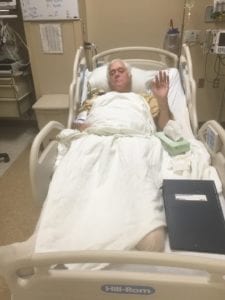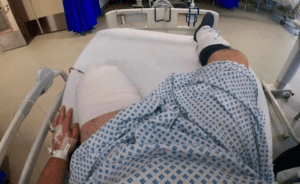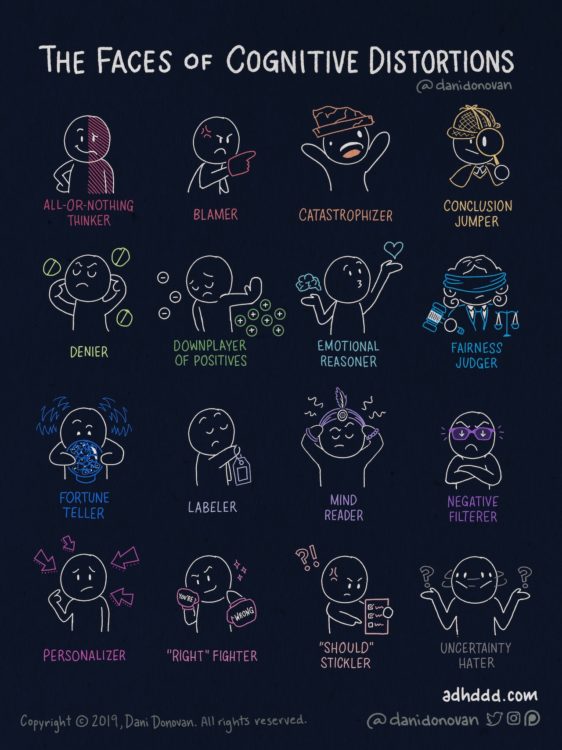
Is an amputation without regret even possible? How to have an amputation is for you.. The loss of a limb can have a considerable psychological impact. The grief and bereavement people face after an amputation are equivalent to the death of a loved one. ignoring the psychological impact of amputation will be your first drastic mistake. It’s not hard since you are surrounded by professionals only worried about your medical condition. The physical problems take precedence. Professionals helping medically have been told that they are not to address your psychological effects since they are not trained to deal with it. Amputees will leave the hospital with their psychological traumas not even addressed unless they insist on it.
All you have to do is ask for a psychiatric consultation while you are in the hospital. Once discharged it takes weeks of constant phone calls to find a psychiatrist to see you without a huge fee for their initial consultation. When I looked at the standard fee above your insurance was $400.00 for an initial evaluation. It is strongly recommended that a staff psychiatrist evaluate you for possible medication while you are in the hospital. An antidepressant takes several weeks to take effect. Some antidepressants will help with anxiety, as well.
Once you are discharged, getting an appointment with one will be nearly impossible. Once you have been evaluated by a staff psychiatrist and put on psychiatric medications, the hospital must find you one to continue your treatment. Likewise, you need to find a therapist who specializes in amputations as soon as you can because it is extremely hard to find one who will take you. While you are in the hospital it is particularly important to ask for a staff occupational therapist because they can help with daily tasks as well as returning to work.
Start working with a physical therapist while you are in the hospital so that your muscles don’t degenerate. You need to make sure you have an appointment with one who can come to your home when you are discharged. These services should be provided for you, but you have to insist on them considering the lack of follow-through hospital staff provides these days.
Psychological Impact of an Amputation
Having an amputation can have a considerable psychological impact for 3 main reasons:
- Looking at your stump makes you aware of what you have lost.
- you can no longer physically rely on your amputated limb
- your body image, and other people’s perception of how you look has changed
All amputees face critical negative thoughts and feelings. This is particularly true in people who have had an emergency amputation because they don’t have time to mentally prepare for the effects of surgery.
What You May Have to Deal With
Amputees must be aware of the negative emotions and thoughts that can lead to the following serious psychological disorders:
- depression
- anxiety
- denial
- grief and the other stages of loss
Car crashes or other traumatic events that lead to an emergency amputation will almost always result in post-traumatic stress disorders. It is essential to find a therapist knowledgeable in PTSD. We learned after the Viet Nam war what a toll this psychological disorder can have on someone.
How to have an amputation without regret
Having a psychiatrist, an amputee life coach, or a therapist familiar with Post Traumatic Stress Disorder already treating you is essential to reduce the potential of psychological problems from getting worse. It also eliminates a tremendous amount of frustration. Waiting this long to get an appointment with these professionals is not an easy task.
In my case, it took weeks of daily calling and calling back several times when their office managers do not return my call. Psychiatrists do not do a good job providing their current office numbers, so wading through many telephone numbers only to find out that the physician no longer works there and has left no way to reach them should not discourage you. Finding a therapist who has experience with amputees is also a daunting task. Do not get discouraged if a mental health specialist is saying, “I don’t have any idea what you are dealing with.” Continue looking because people who have specialized in amputations or even had one themselves are out there.
To be told you need to have a limb amputated can feel like a devastating and frightening experience. If you can always ask for a second opinion. If you wake up in the hospital missing a limb work with the resources that the hospital has as soon as you wake up to get as many services set up. You can have an occupational therapist and a physical therapist to come to your home. Adjusting to life after an amputation can be challenging, but many people enjoy a good quality of life once they have managed to adapt.







It is a little expensive but it cleans the odor and any other bacteria.
You are right on in your saying that it comes down to us how disabled or augmented we are. I am planning more articles on drawing that locus of control distinction. If you want an advance copy of it let me know.